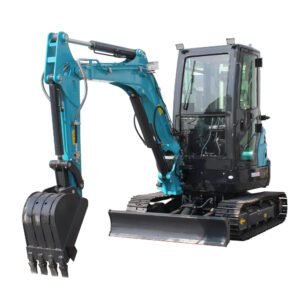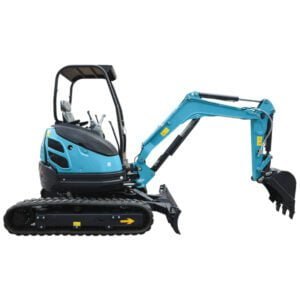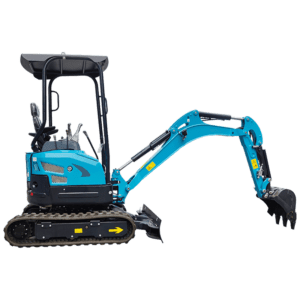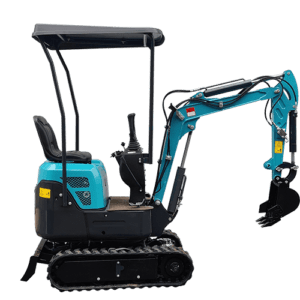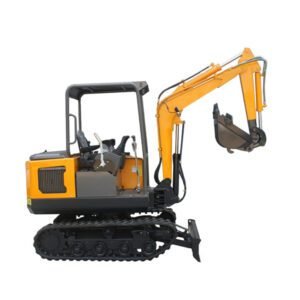Email: [email protected] Whatsapp: 8618266768780
Best Excavator Brand
Excavators, the workhorses of construction sites, come in various sizes and capabilities, but finding the best brand that aligns with your project requirements can be a challenging task. Let’s explore the factors and considerations to help you navigate the plethora of options available.
Introduction to Excavators

Excavators are pivotal in construction, mining, and infrastructure development, handling tasks ranging from digging trenches to heavy lifting. Choosing the right brand ensures efficiency, durability, and performance.
Factors to Consider when Choosing an Excavator Brand
Reputation and Reliability
When considering the reputation and reliability of an excavator brand, it’s essential to delve into its track record within the industry. A brand’s reputation often serves as a testament to its trustworthiness and consistency in delivering high-quality machinery. A brand with a strong reputation is typically backed by years of proven reliability, durability, and exceptional performance of its excavators. This includes factors such as longevity of machinery, minimal downtime, and consistent customer satisfaction through reliable after-sales support and service. Evaluating reviews, testimonials, and industry reports can offer valuable insights into a brand’s reputation and reliability, helping you make an informed decision when choosing an excavator brand for your specific project needs.
Performance and Efficiency
When examining the performance and efficiency of an excavator brand, it’s crucial to consider several key factors.
Performance refers to the excavator’s capabilities in terms of horsepower, digging depth, lifting capacity, and overall functionality. A high-performing excavator efficiently handles various tasks, ensuring optimal productivity on the job site. Assessing these specifications provides a clear understanding of how well the excavator can tackle specific project requirements.
Efficiency, on the other hand, revolves around the excavator’s ability to operate effectively while conserving resources such as fuel and time. An efficient excavator minimizes fuel consumption without compromising on performance, thereby reducing operational costs and environmental impact.
Evaluating the performance and efficiency of an excavator brand involves examining its specifications, technological advancements, and real-world performance in different work conditions. This assessment aids in selecting an excavator that not only meets but exceeds the performance and efficiency standards required for your projects.
Versatility and Attachments
Versatility refers to an excavator’s adaptability to handle diverse job requirements. A versatile excavator can efficiently switch between different tasks by utilizing a range of attachments. These attachments, such as buckets, grapples, hydraulic hammers, or thumbs, enhance the excavator’s functionality, allowing it to perform tasks beyond traditional digging. Assessing the range of compatible attachments and the ease of attachment change is crucial in gauging an excavator’s versatility.
The availability and compatibility of attachments significantly contribute to an excavator’s ability to tackle different project demands. Choosing an excavator brand that offers a wide array of attachments and facilitates quick and hassle-free attachment changes can significantly increase its versatility, making it an asset on multifaceted projects.
Top Excavator Brands in the Market
Caterpillar
Renowned for its durability and extensive range, Caterpillar excels in producing excavators suitable for diverse job requirements.
Komatsu
With a focus on technological advancements, Komatsu’s excavators boast innovation, fuel efficiency, and operator comfort.
Qilu
Qilu’s excavators are acclaimed for their reliability, high performance, and cutting-edge technology.
Volvo
Volvo’s excavators stand out for their fuel efficiency, ergonomic design, and commitment to sustainability.
John Deere
Recognized for robustness and precision, John Deere’s excavators offer durability and innovative features.
Comparative Analysis of Excavator Brands
Caterpillar vs. Komatsu
Comparing the strengths and weaknesses of Caterpillar and Komatsu helps in understanding their suitability for specific project needs.
Qilu vs. Volvo
An in-depth analysis of Qilu and Volvo excavators sheds light on their unique features and benefits.
Innovations and Technologies in Excavators
Modern excavators incorporate advanced technologies aimed at enhancing performance, operator comfort, and overall productivity. These innovations range from sophisticated hydraulic systems to intuitive control interfaces and integrated telematics.
One notable innovation is the integration of GPS and telematics systems, enabling precise positioning and monitoring of the machine’s performance in real-time. This technology not only improves accuracy in excavation but also allows for better project management and cost-efficiency.
Moreover, advancements in hydraulic systems and engine efficiency have led to significant improvements in fuel consumption, reducing environmental impact while maintaining high productivity levels.
Additionally, some excavator models now feature autonomous capabilities or semi-autonomous functions, enhancing safety and operational efficiency on job sites.
Customer Reviews and Testimonials
Real-user experiences offer firsthand accounts of how these machines operate in diverse work conditions. They often highlight specific strengths, such as durability, ease of operation, and performance, as well as any potential weaknesses or areas for improvement.
Testimonials from contractors, operators, or construction professionals who have used specific excavator brands offer a glimpse into the day-to-day usability, maintenance requirements, and overall satisfaction with the machines. These testimonials provide a more nuanced understanding beyond technical specifications, helping potential buyers make informed decisions based on real-world experiences.
Cost and Budgeting Considerations
The initial purchase cost of an excavator is a significant aspect to evaluate. Different brands and models vary in price based on their specifications, size, and capabilities. However, beyond the upfront cost, it’s crucial to consider the overall lifetime cost, including maintenance expenses, operational costs (such as fuel consumption), and potential resale value.
Budgeting for an excavator involves not just the purchase price but also long-term expenses. Assessing the total cost of ownership helps in making an informed decision. Sometimes, a higher initial investment might translate to lower operational costs and higher resale value, leading to better cost-effectiveness in the long run.
Moreover, considering financing options, leasing, or rental programs offered by manufacturers or dealers can assist in managing upfront costs and fitting the purchase within a feasible budget.
Balancing the initial investment with long-term expenses and potential returns is essential in budgeting for an excavator, ensuring optimal financial planning and project feasibility.
Maintenance and Support Services
Reliable after-sales support and maintenance services are fundamental for ensuring the continuous performance and longevity of an excavator. Brands that offer comprehensive maintenance packages, timely servicing, and readily available spare parts contribute to reduced downtime and increased productivity on the job site.
Assessing the quality and accessibility of maintenance services, including warranty coverage and technical support, is essential. A brand that provides responsive customer service and readily available support can significantly impact the overall ownership experience.
Additionally, evaluating the availability of spare parts and the ease of obtaining them is vital. Quick access to genuine parts ensures minimal downtime during repairs or maintenance, maximizing the excavator’s uptime and productivity.
Environmental Impact and Sustainability
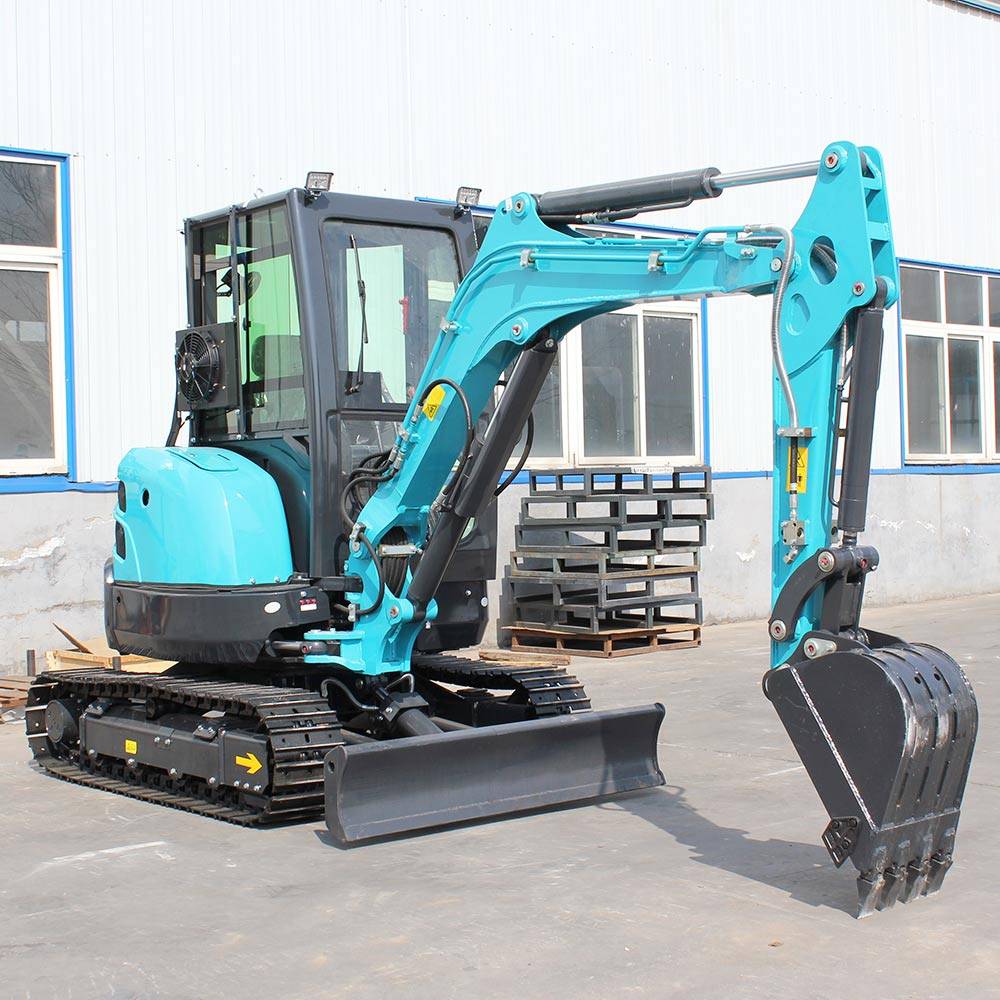
Environmental impact encompasses factors such as fuel efficiency, emissions, and eco-friendly design. Excavator brands that prioritize fuel-efficient engines and innovative technologies aimed at reducing emissions contribute to lower environmental impact, minimizing carbon footprints on job sites.
Sustainability practices go beyond just the machine’s operation. Brands that focus on eco-friendly manufacturing processes, use of recyclable materials, and adherence to environmental regulations showcase a commitment to sustainability. Additionally, some brands may incorporate features like energy-saving modes or alternative fuel options to further reduce environmental impact.
Considering a brand’s dedication to environmental responsibility aligns with the growing emphasis on sustainable construction practices. Choosing an excavator brand that prioritizes eco-friendly designs and reduces environmental impact helps in meeting project goals while contributing positively to environmental conservation efforts.
Choosing the Best Excavator Brand for Your Needs
Firstly, assess your project requirements, considering factors like the scale of the project, tasks involved, and environmental considerations. Identify the key features and specifications essential for efficiently completing your tasks.
Next, research and compare different excavator brands, considering their reputation, reliability, performance, versatility, technological innovations, customer reviews, and sustainability practices. Look for a brand that aligns closely with your project’s demands and offers a balance of features that cater to your specific needs.
Evaluate the overall cost of ownership, including initial purchase costs, long-term operational expenses, maintenance, and support services. Assess the brand’s track record in providing reliable after-sales support, availability of spare parts, and warranty coverage.
Prioritize brands that not only meet your immediate requirements but also offer room for scalability and adaptability to potential future project needs.
Conclusion
Selecting the best excavator brand demands a comprehensive evaluation of multiple factors, including performance, reliability, versatility, and environmental impact. By weighing these considerations against project-specific needs, you can make an informed decision that maximizes efficiency and productivity.
FAQs
- Are all excavator brands suitable for all types of projects?
- No, different excavator brands have varying strengths and specializations. Some excel in heavy-duty projects, while others might be better suited for smaller-scale tasks. It’s crucial to match the brand’s features and capabilities with the specific needs of your project.
- How do I determine the right excavator size for my project?
- The excavator size should be determined based on the scale of your project and the tasks it involves. Factors like digging depth, reach, and lifting capacity play a significant role. Consulting with experts or dealers can help in selecting the appropriate size for your project requirements.
- What role does technological innovation play in choosing an excavator brand?
- Technological advancements in excavators often contribute to increased efficiency, fuel savings, better operator comfort, and enhanced performance. When selecting a brand, consider the innovative features that align with your project needs to improve productivity and cost-effectiveness.
- Is brand reputation more critical than the machine’s specifications?
- Both brand reputation and machine specifications are important. A reputable brand often signifies reliability and quality, but it’s equally vital to evaluate the machine’s specifications, capabilities, and suitability for your specific tasks to ensure optimal performance.
- Are there financing options available for purchasing excavators?
- Yes, many manufacturers and dealers offer financing options, leasing, or rental programs for purchasing excavators. These options can help manage upfront costs and fit the purchase within your budget. It’s advisable to explore these options and choose the one that aligns best with your financial strategy and project requirements.
About Us
Shandong Qilu Industrial Co., Ltd. is a professional manufacturer and exporter integrating the development and production of excavators, loaders and tractors. We provide the best service, absolutely.
Recent Posts
Video demo
-1.png)
Contact Us Today!
Any question, quote or inquiry? Click the button to send message.
Qilu Industrial will always here to help.

